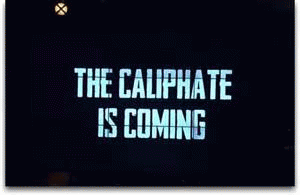Readings for the Solemnity of Our Lord Jesus Christ, King of the Universe: EZ 34: 11-12, 15-17; PS 23: 1-3, 5-6; I COR 15: 20-26, 28; MT 25: 31-46.
At the moment, I'm teaching a wonderful course at Berea College, REL 126. It's called "Poverty and Social Justice" and qualifies as part of the "Religion Requirement" all Berea students must fulfill. The course is populated by 19 very smart and engaged, (mostly third and fourth year) students.
Part of our goal is to become literate about the problems of poverty and justice in our very confusing world. And that has us tuning in to "Democracy Now" each day. We're getting involved with a powerful group of local activists, "Kentuckians for the Commonwealth" (KFTC). We attend the group's meetings each month and have volunteered for KFTC activities like voter registration and mobilization.
Additionally, students have been researching burning issues including the war in Ukraine, the conflict in Palestine, voter suppression, police militarization, and the philosophy of Ayn Rand.
All of that has discussing the purpose of government. In that connection, students are finally getting clarity about what I consider THEfundamental political debate in our country: is the government's role simply to provide infrastructure for commerce and to protect private property? Or is it to sponsor programs to directly help the poor who (unlike their rich counterparts) cannot on their own afford adequate food, shelter, clothing, health care, and education -- even if they are working full-time?
For the last thirty-five years or so, the former view has carried the day in the U.S. So it has become fashionable and politically correct even (especially?) for Christians to advocate depriving the poor of health care to help them achieve the American Dream, "ennobling" the unemployed by removing their benefits, criminalizing sharing food with the poor, and "punishing" perpetrators of victimless crimes by routinely placing them in solitary confinement.
Today's readings reject all of that. And they do so on a specifically political liturgical day -- the commemoration of the "Solemnity of Our Lord Jesus Christ, King of the Universe." Yes, this is a political liturgy if ever there was one. It's all about "Lords" and "Kings" and how they should govern in favor of the poor. It's about a new political order presided over by an unlikely monarch -- a king who was executed as a terrorist by the imperial power of his day. I'm referring, of course, to the worker-rebel, Jesus the poor carpenter from Nazareth.
Today's readings promise that the rebel -- the "terrorist" -- Jesus will institute an order utterly different from Rome's. That order recognizes the divine nature of immigrants, dumpster-divers, those whose water has been ruined by fracking and pipe lines, the ragged, imprisoned, sick, homeless, and those (like Jesus) on death row. Jesus called it the "Kingdom of God." It's what we celebrate on this "Solemnity of Jesus Christ King of the Universe."
(Btw: in the eyes of Jesus' executioners, today's commemoration would be as unlikely as some future world celebrating the "Solemnity of Osama bin Laden, King of the Universe." Think about that for a minute!)
In any case, today's readings delineate the parameters of God's new universal political order. To get from here to there, they call governments to prioritize the needs of the poor and those without public power. Failing to do so will bring destruction for the selfish leaders themselves and for the self-serving political mess they inevitably cultivate.
Today's first reading gets quite specific about that mess. There the prophet Ezekiel addresses the political corruption Lord Acton saw as inevitable for leaders with absolute power. Ezekiel's context is the southern kingdom of Judah in the 6 th century BCE. It found itself under immediate threat from neighboring Babylon (Iraq). In those circumstances, the prophet words use a powerful traditional image (God as shepherd) to inveigh against Israel's pretentious potentates. In God's eyes, they were supposed to be shepherds caring for their country's least well-off. Instead, they cared only for themselves. Here's what Ezekiel says in the lines immediately preceding today's first lesson:
"Woe to you shepherds of Israel who only take care of yourselves! . . . But you do not take care of the flock. 4 You have not strengthened the weak or healed the sick or bound up the injured. You have not brought back the strays or searched for the lost. You have ruled them harshly and brutally."
In other words, according to Ezekiel's biblical vision, government's job is to address the needs of the weak, the sick and the injured. It is to tenderly and gently bring back the wayward instead of punishing them harshly and brutally.
A great reversal is coming, Ezekiel warns. The leaders' selfishness will bring about their utter destruction at the hands of Babylon.
On the other hand, Judah's poor will be saved. That's because God is on their side, not that of their greedy rulers. This is the message of today's responsorial psalm -- the familiar and beloved Psalm 23 ("The Lord is my shepherd. . . ") It reminds us that the poor (not their sleek and fat overlords) are God's "sheep." To the poor God offers what biblical government should: nothing but goodness and kindness each and every day. Completely fulfilling their needs, the divine shepherd provides guidance, shelter, rest, refreshing water, and abundant food. Over and over today's refrain had us singing "There is nothing I shall want." In the psalmist's eyes, that's God's will for everyone -- elimination of want. And so the task of government leaders (as shepherds of God's flock) is to eradicate poverty and need.
(Note: You can view every article as one long page if you sign up as an Advocate Member, or higher).






